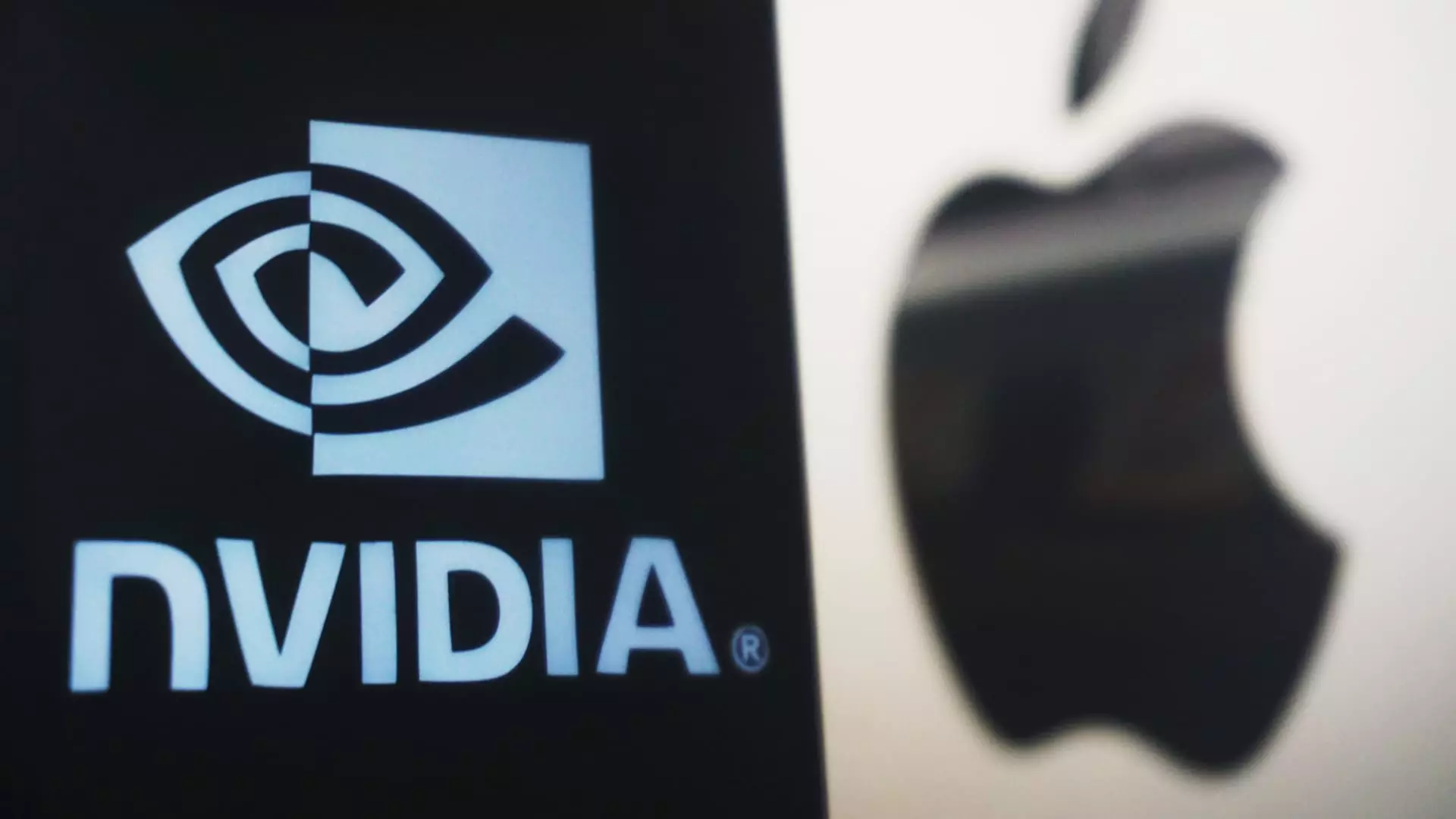In a remarkable turn of events, the global technology sector experienced a significant uptick on Monday, bolstered by a temporary consensus between the United States and China to pause reciprocal tariffs on a swath of goods. The tech industry, particularly semiconductor and smartphone manufacturers, has been under severe duress due to escalating trade tensions between the two economic giants. These tensions have prompted a wave of speculation regarding potential disruptions to supply chains that could reverberate throughout the market. Investors were graced with a breath of fresh air following the weekend discussions, which yielded a welcome albeit temporary reprieve from potential trade hostilities.
Tech stocks, particularly those involved in the semiconductor sector, surged as a result. Companies like Nvidia and AMD saw premarket gains of approximately 4% and 5%, respectively. The relief in the market was palpable, as firms connected to the semiconductor supply chain, including Broadcom and Qualcomm, rose by similar margins. One standout was Marvell, which, despite recently postponing its investor day amidst macroeconomic uncertainties, saw its stock leap by a striking 7.5%. Furthermore, Taiwan Semiconductor Manufacturing Company (TSMC), often heralded as the backbone of global chip production, witnessed a considerable increase in its U.S.-listed shares, soaring nearly 4%.
The European Response and Semiconductor Machinery Gains
Across the Atlantic, Europe’s markets exhibited similar optimism. ASML, a key supplier of advanced machinery essential for chip manufacturing, propelled its stock upwards by 4.5%. This enthusiasm was mirrored by other European tech firms, notably Infineon, which also experienced notable gains. Despite President Trump’s recent tariffs, which had initially excluded semiconductors, there was widespread acknowledgment in the market that these tax rules could become a reality for these vital products in the future. Thus, while today’s sentiment had a bullish essence, an undercurrent of concern lingered, emphasizing that the current relief may only be a temporary facade.
This ambiguity also affected major tech players like Apple and Amazon, whose prospects have dimmed amid the heightening trade disputes. Apple disclosed in its recent financial report that it anticipates an additional $900 million in costs attributed to tariffs, which has sent waves of caution through its investor base. Yet amidst this climate of uncertainty, Apple’s stock rose more than 6%, evidence that the pause in tariffs may provide some short-term relief. Amazon’s performance also reflected optimism, climbing more than 8% in premarket trading, largely since many vendors rely on Chinese products for their inventory.
Noteworthy Recovery of Chinese Tech Stocks
Chinese tech stocks, which have faced intense scrutiny and volatility, likewise joined the resurgence. Companies such as Alibaba and JD.com saw significant increases in their stock prices, which can largely be attributed to the easing of tariffs on imports from China, sparking renewed interest among investors. Baidu, known for its internet services, also contributed to the bullish wave that swept through U.S.-listed Chinese tech stocks.
Daniel Ives, a respected voice in technology research, expressed optimism regarding future market performance, suggesting that with both nations seemingly moving toward a broader trade deal, the pathway to record highs for tech stocks could very well be possible. His analysis implies that investors will likely keep a close watch on forthcoming developments in trade discussions, which are poised to unfold over the coming months.
Implications for Future Market Sentiment
This brief pause in tariff implementation signifies not merely a temporary win but an indicative shift in the approach of both countries towards trade relations. It invites reflections on the future trajectory of U.S.-China relationships in the context of technology and economic policy. The tech industry, known for its resilience, could thrive under improved conditions, but it also faces the perennial threat of uncertainty that often comes with international trade agreements. As the dust settles from this latest development, market observers must remain vigilant and adaptable to the rapidly evolving landscape, as the stakes are inherently high for both economies and the global tech industry.

